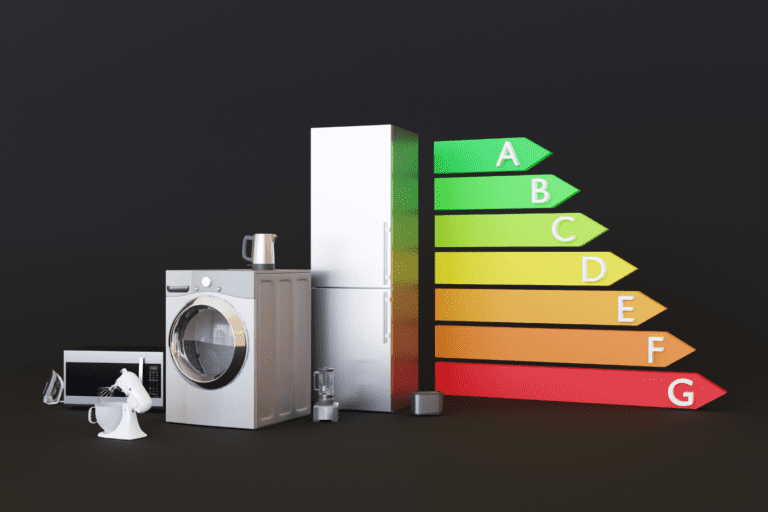Have you ever felt overwhelmed by the myriad sustainability certifications out there, unsure which ones truly make a difference?
If you’ve found yourself lost in the sea of eco-labels, wondering which are worth your attention, you’re not alone. Fear not! This guide is your compass, navigating through the complexities of sustainability certifications.
Get ready to unravel the mysteries and make choices that matter for a greener tomorrow.
What is a sustainability certification?
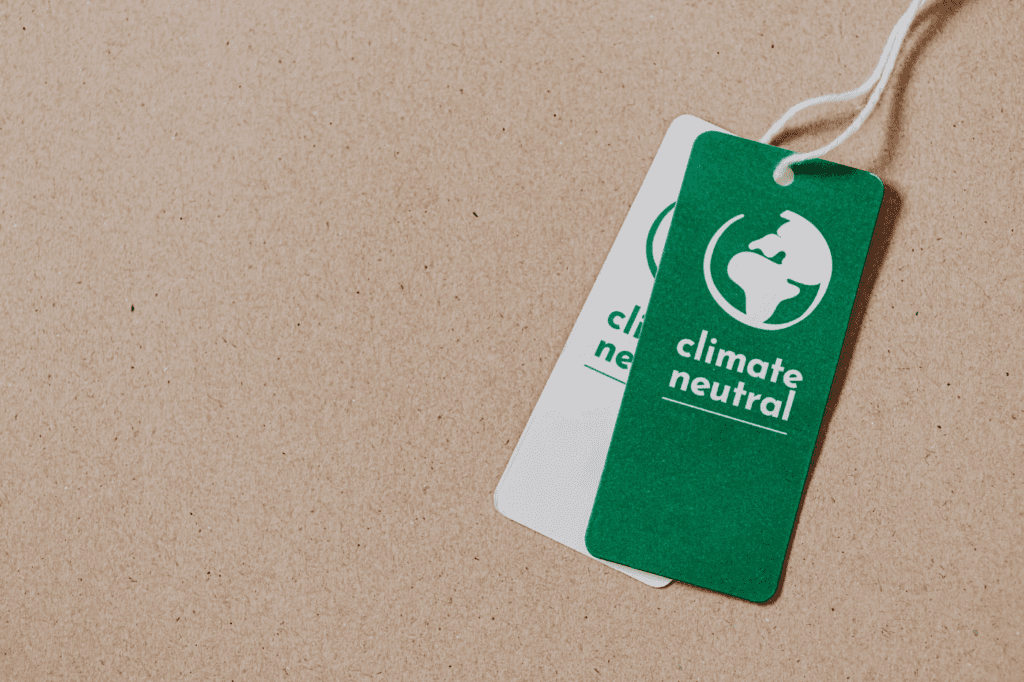
A sustainability certification is a designation awarded to products, services, or organizations that meet specific environmental, social, or ethical standards.
These certifications are issued by independent third-party organizations and are designed to signal to consumers and stakeholders that the certified entity adheres to sustainable practices and contributes to positive social and environmental impacts.
Do you need sustainability certifications?

While sustainability certifications are not mandatory, they can provide numerous benefits for businesses and consumers alike.
Certifications offer a way for organizations to demonstrate their commitment to environmental and social responsibility, differentiate themselves in the market, and build trust with consumers who prioritize sustainable practices.
Benefits of Sustainability Certifications
- Demonstrates commitment to environmental and social responsibility.
- Differentiates businesses in the market.
- Builds trust with consumers prioritizing sustainability.
What are the 22 Popular Sustainability Certifications?
Here’s an overview of all the 22 sustainability certifications we will tackle in the following:
Environmental Certifications
- LEED (Leadership in Energy and Environmental Design): Recognized globally, LEED certifies buildings and communities that prioritize sustainability in design, construction, and operation.
- ISO 14001 (Environmental Management System): Focused on environmental responsibility, ISO 14001 ensures organizations implement effective environmental management systems.
- ISO 50001 (Energy Management System): ISO 50001 helps organizations improve energy performance and reduce energy-related costs.
- Energy Star: A symbol of energy efficiency, Energy Star certifies products and buildings that meet strict energy efficiency guidelines.
- Green Seal: Green Seal ensures that products and services meet rigorous environmental and performance standards.
- Carbon Trust Standard: Recognizing efforts to measure, manage, and reduce carbon emissions, this standard is awarded to organizations committed to sustainability.
- Green Building Initiative’s Green Globes: A certification program assessing the environmental performance of buildings.
- Carbon Neutral Certification: Signifying organizations and products that offset their carbon footprint, achieving carbon neutrality.
- EPEAT (Electronic Product Environmental Assessment Tool): Assesses the environmental impact of electronic products.
- UL Environment Sustainable Product Certification: UL Environment certifies products for their environmental performance and sustainability.
- WRAP (Worldwide Responsible Accredited Production): Focused on social and ethical responsibilities in the global supply chain.
- Global Organic Textile Standard (GOTS): Recognizes organic textiles and ensures ecological and social criteria are met.
- Sustainable Forestry Initiative (SFI): Certifies responsible forest management practices.
- Cradle to Cradle (C2C) Certified Apparel: Evaluates products based on their materials, manufacturing, and end-of-life recycling.
Social and Ethical Certifications
- Fair Trade Certified: Ensures fair wages and ethical treatment for workers in various industries.
- B Corp Certification: Recognizes businesses that meet high social and environmental standards.
- Fair Wear Foundation: Focuses on improving labor conditions in the garment industry.
Sustainable Agriculture and Fishing Certifications
- USDA Organic: Certifies organic agricultural practices.
- Rainforest Alliance Certified: Promotes sustainable farming, protecting ecosystems and supporting communities.
- Marine Stewardship Council (MSC): Ensures sustainable fishing practices.
- Non-GMO Project Verified: Certifies products as free from genetically modified organisms.
Renewable Energy Certifications
- Green-e: Certifies renewable energy and carbon offset programs.
LEED (Leadership in Energy and Environmental Design)
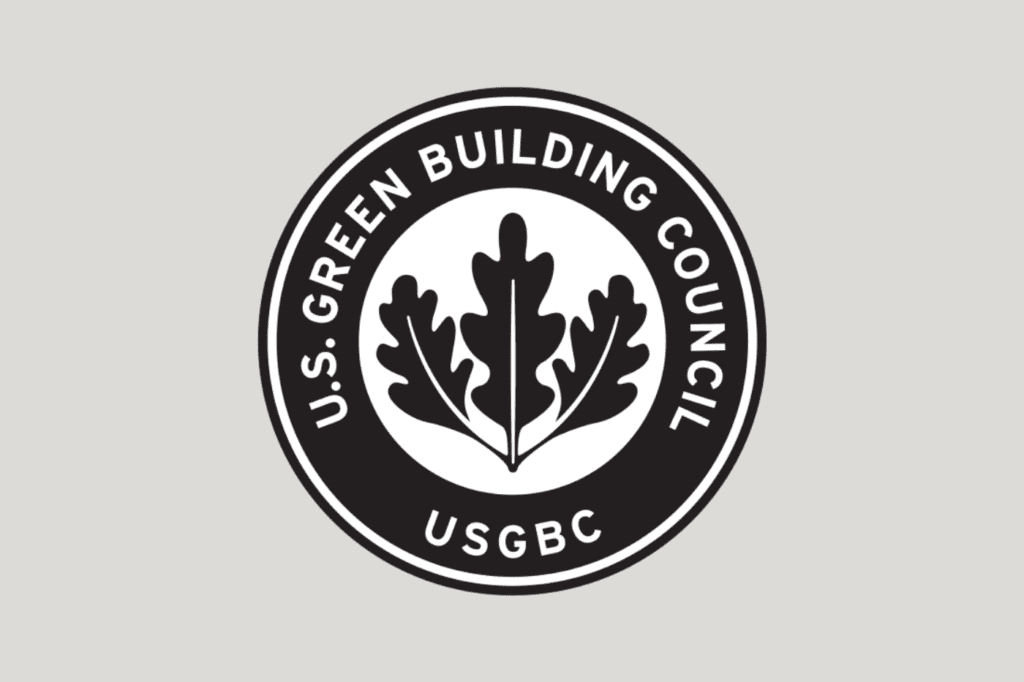
What does it symbolize?
LEED is a globally recognized green building certification system that signifies a commitment to sustainable design and construction.
It evaluates buildings based on various criteria, such as energy efficiency, water conservation, and indoor environmental quality, aiming to minimize environmental impact.
Pros
- Environmental Benefits: LEED-certified buildings typically have lower energy consumption and reduced environmental impact.
- Marketability: Certification enhances a building’s marketability, attracting environmentally conscious tenants.
- Health and Well-being: Emphasis on indoor air quality and occupant comfort contributes to better health outcomes.
- Government Recognition: Some local governments offer incentives or mandates for LEED-certified construction.
Cons
- Cost: Achieving certification can involve additional costs for design, documentation, and verification.
- Complexity: The certification process can be intricate, requiring thorough planning and documentation.
- Stringency: Some argue that LEED standards may be too strict for certain projects, limiting design flexibility.
LEED is a valuable tool for fostering sustainable practices in the construction industry, but its adoption should align with project goals and budget considerations.
ISO 14001 (Environmental Management System)
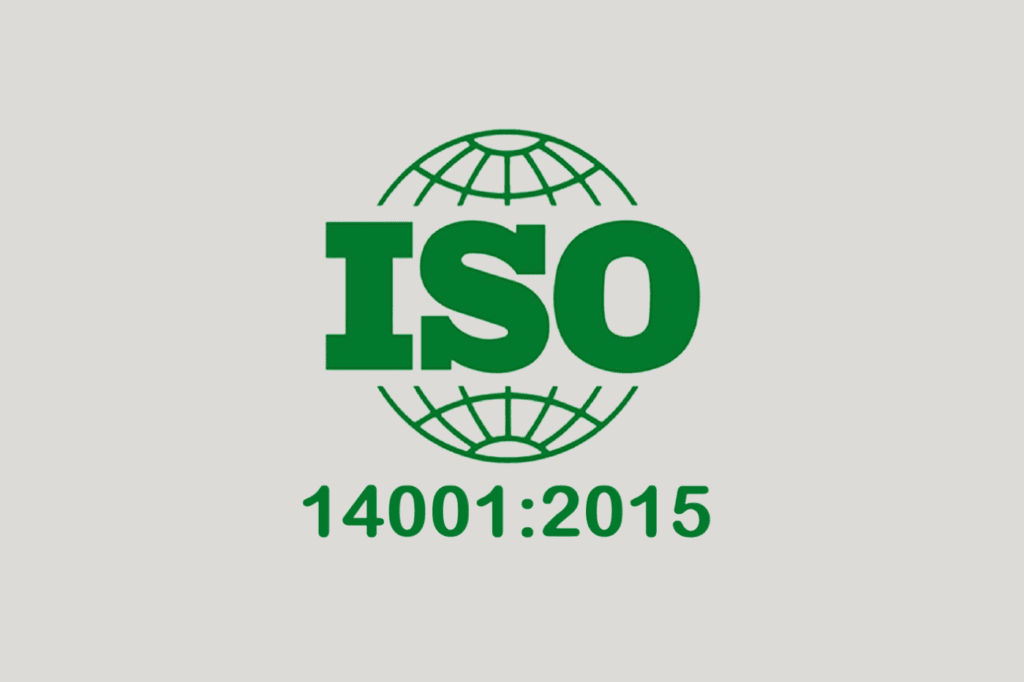
What does it symbolize?
ISO 14001 is an international standard for environmental management systems. It provides a framework for organizations to establish, implement, maintain, and continually improve their environmental performance. Certification indicates a commitment to environmental responsibility.
Pros
- Global Recognition: ISO 14001 is globally recognized and accepted, enhancing the credibility of certified organizations.
- Compliance: Helps organizations comply with environmental regulations and legal requirements.
- Operational Efficiency: Encourages efficient use of resources and waste reduction, leading to cost savings.
- Stakeholder Confidence: Certification demonstrates commitment to environmental sustainability, building trust with stakeholders.
Cons
- Resource Intensive: Implementation and certification may require substantial resources, particularly for smaller businesses.
- Complexity: The standard can be complex, requiring detailed documentation and commitment to continuous improvement.
ISO 14001 is beneficial for organizations seeking to integrate environmental considerations into their operations and demonstrate responsible business practices.
ISO 50001 (Energy Management System)
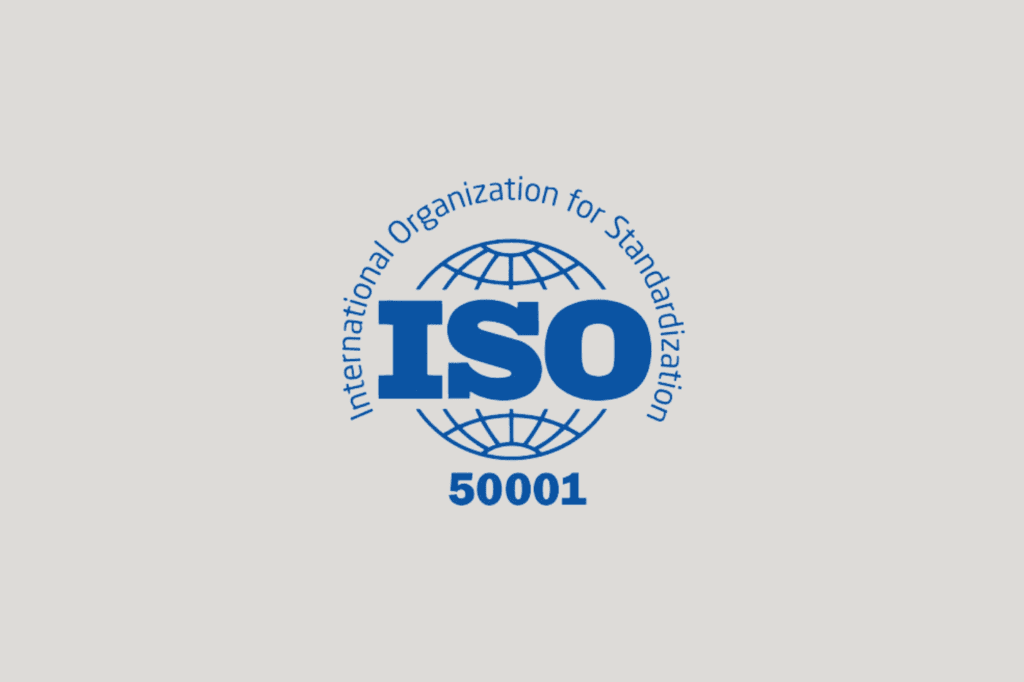
What does it symbolize?
ISO 50001 is an international standard for energy management systems. It provides a systematic approach for organizations to manage and improve their energy performance, focusing on energy efficiency and conservation. Certification reflects a commitment to sustainable energy practices.
Pros
- Energy Efficiency: Encourages the development of energy-efficient processes, leading to reduced energy consumption.
- Cost Savings: Improved energy management can result in significant cost savings over time.
- Regulatory Compliance: Helps organizations comply with energy-related regulations and requirements.
- Environmental Impact: Contributes to environmental sustainability by reducing greenhouse gas emissions.
Cons
- Implementation Complexity: Implementing ISO 50001 can be complex, requiring detailed planning and resource allocation.
- Resource Intensive: Initial certification may demand significant resources, particularly for smaller organizations.
ISO 50001 is valuable for organizations seeking to enhance their energy performance, reduce energy-related costs, and contribute to environmental goals.
ENERGY STAR
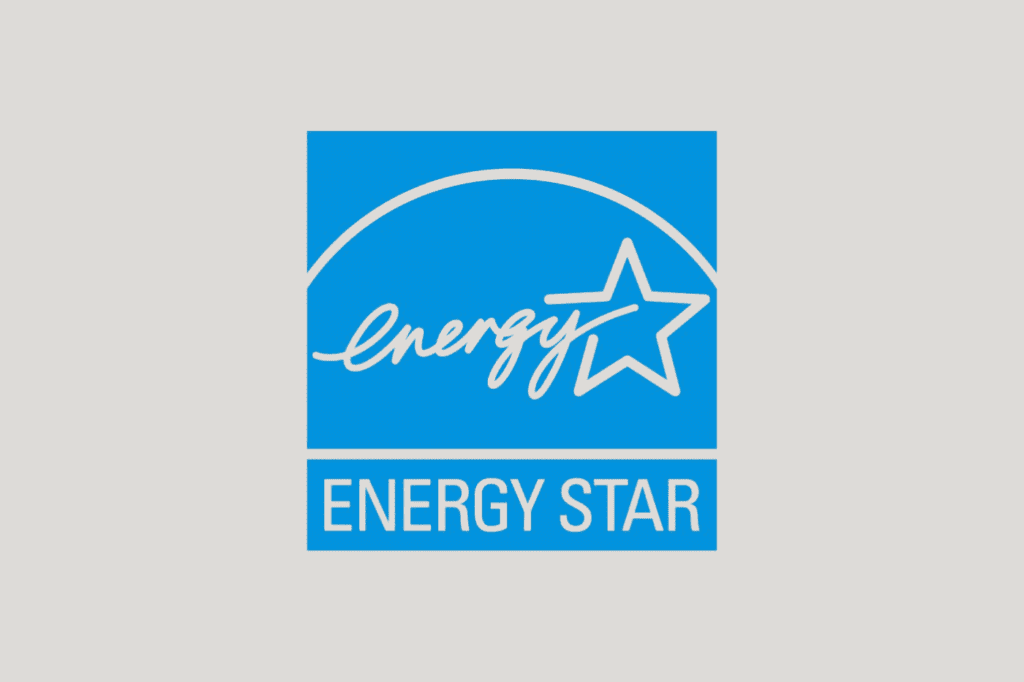
What does it symbolize?
ENERGY STAR is a voluntary certification program backed by the U.S. Environmental Protection Agency (EPA). It signifies that a product, building, or industrial facility meets strict energy efficiency guidelines. The ENERGY STAR label indicates superior energy performance, helping consumers and businesses make eco-friendly choices.
Pros
- Energy Efficiency: Products with the ENERGY STAR label meet high standards for energy efficiency, reducing energy consumption.
- Cost Savings: Energy-efficient products often lead to lower utility bills, providing long-term cost savings.
- Environmental Impact: Reduces greenhouse gas emissions and promotes sustainable practices.
- Consumer Trust: The ENERGY STAR label is widely recognized, instilling confidence in consumers about a product’s energy performance.
Cons
- Limited Scope: ENERGY STAR primarily focuses on energy efficiency and may not cover all aspects of sustainability.
- Geographical Specificity: While widely recognized in the U.S., its prevalence may vary in other regions.
ENERGY STAR is a valuable certification for consumers aiming to choose energy-efficient products and organizations committed to reducing their environmental footprint.
GREEN SEAL
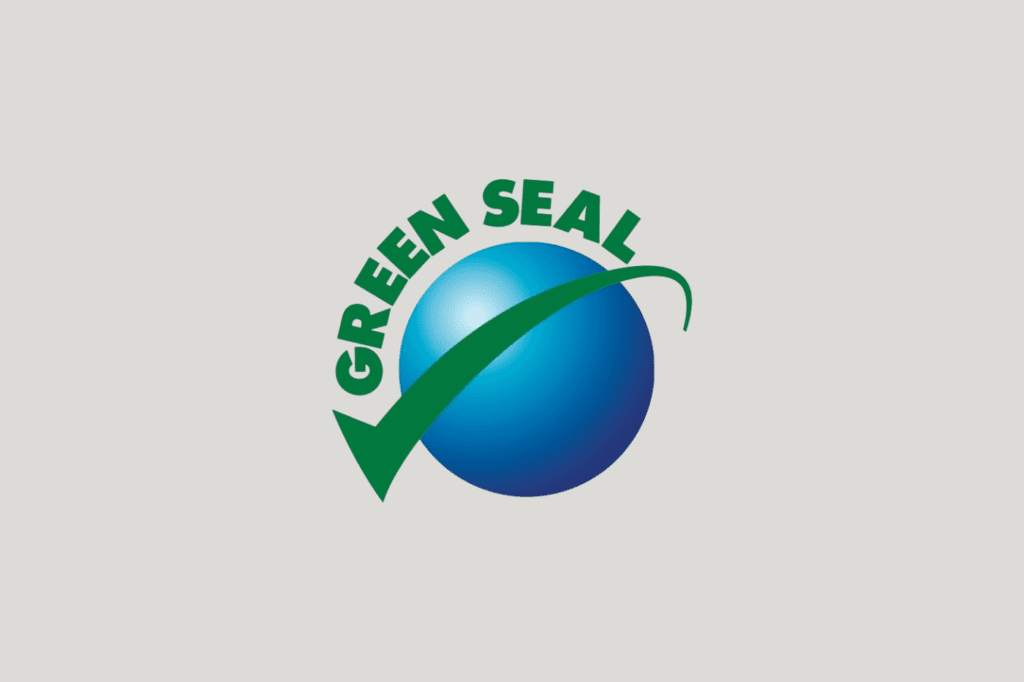
What does it symbolize?
Green Seal is an independent non-profit organization that provides certifications for sustainable products, services, and companies. Their seal signifies that a product or service has undergone rigorous assessments, ensuring environmental responsibility and performance excellence.
Pros
- Comprehensive Standards: Green Seal evaluates products and services based on a holistic set of environmental criteria.
- Third-Party Verification: Certification is granted only after rigorous third-party assessments, enhancing credibility.
- Broad Applicability: Green Seal covers various industries, from cleaning products to construction materials.
- Market Differentiation: The Green Seal symbol allows consumers to easily identify environmentally responsible choices.
Cons
- Cost of Certification: Obtaining and maintaining Green Seal certification may involve expenses.
- Complex Process: The certification process can be intricate, requiring detailed documentation and adherence to standards.
Green Seal is a reputable certification for consumers seeking environmentally conscious options, reflecting a commitment to sustainability by certified businesses.
CARBON TRUST STANDARD
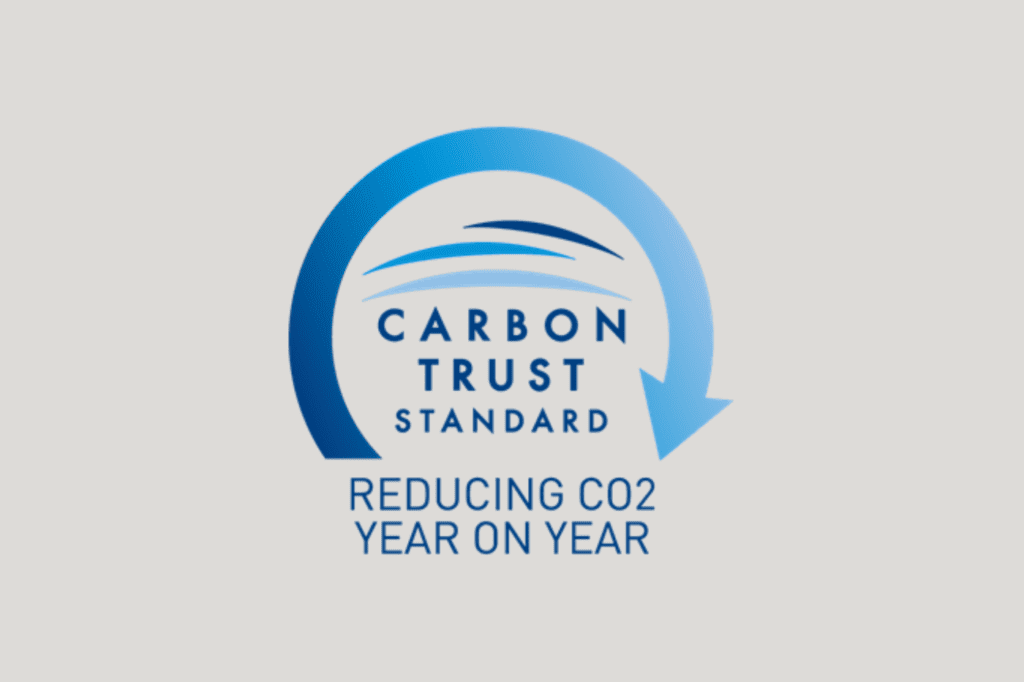
What does it symbolize?
The Carbon Trust Standard is a certification that recognizes organizations for measuring, managing, and reducing their carbon footprint. It signifies a commitment to reducing greenhouse gas emissions and improving overall environmental sustainability.
Pros
- Credible Carbon Reduction: Certification demonstrates a genuine effort to reduce carbon emissions.
- Enhanced Reputation: The standard enhances a company’s reputation by showcasing its commitment to environmental responsibility.
- Market Competitiveness: Certified organizations may gain a competitive edge in markets focused on sustainability.
- Continuous Improvement: The standard encourages ongoing efforts to reduce carbon emissions, promoting a culture of sustainability.
Cons
- Resource Intensive: Achieving and maintaining certification can be resource-intensive in terms of time and effort.
- Focus on Carbon Only: The standard primarily focuses on carbon emissions, potentially overlooking other environmental aspects.
The Carbon Trust Standard is valuable for organizations dedicated to measuring and reducing their carbon impact, contributing to global efforts to combat climate change.
GREEN BUILDING INITIATIVE’S GREEN GLOBES
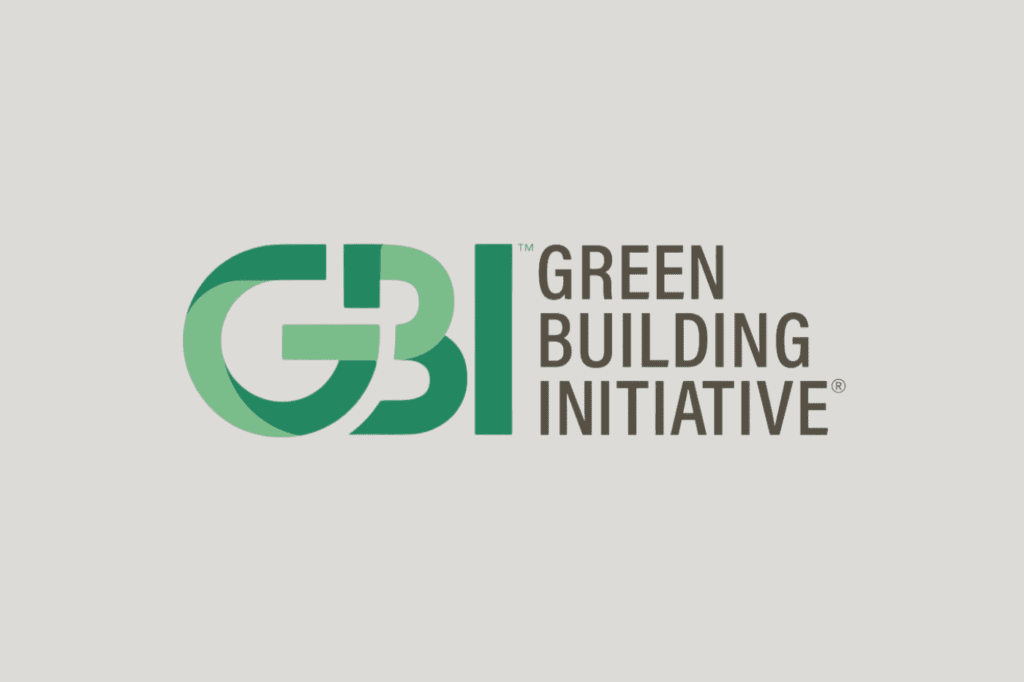
What does it symbolize?
Green Globes is a certification program by the Green Building Initiative (GBI), emphasizing sustainable practices in building design, construction, and operation. It assesses environmental impact and provides a rating for green building performance.
Pros
- Flexibility: Green Globes offers a more flexible and interactive approach to green building assessment.
- Comprehensive Evaluation: It considers various aspects, including energy efficiency, indoor environment, and resource use.
- Cost-Effective: The certification process may be more cost-effective compared to some other rigorous green building certifications.
- Ongoing Performance Monitoring: Green Globes encourages ongoing monitoring and improvement in building performance.
Cons
- Less Global Recognition: While gaining popularity, Green Globes may have less global recognition compared to certain other certifications.
- Subjectivity: Some critics argue that the assessment process may have subjective elements.
Green Globes is a suitable choice for those seeking a comprehensive and flexible green building certification that emphasizes practicality and ongoing improvement.
CARBON NEUTRAL CERTIFICATION
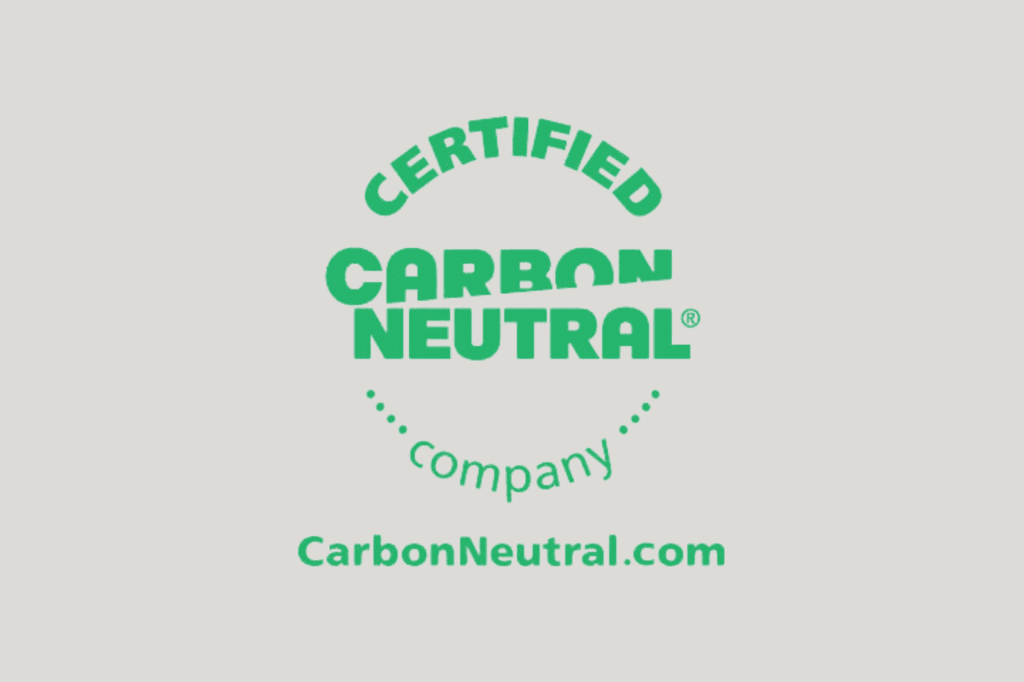
What does it symbolize?
Carbon Neutral Certification signifies that an entity, product, or event has taken measures to reduce, offset, or mitigate its carbon emissions, resulting in a net-zero carbon footprint. Achieving carbon neutrality involves quantifying emissions, implementing reduction strategies, and investing in carbon offset projects.
Pros
- Environmental Stewardship: Demonstrates a commitment to environmental responsibility by actively addressing and offsetting carbon emissions.
- Market Competitiveness: Products or businesses with carbon neutral certification may gain a competitive edge in environmentally conscious markets.
- Climate Action: Contributes to global climate action goals by reducing overall greenhouse gas emissions.
Cons
- Complex Measurement: Calculating and verifying a carbon footprint can be complex, requiring detailed assessments and accurate data.
- Offset Quality: The effectiveness of carbon offset projects may vary, and some critics question the quality of certain offset initiatives.
Carbon Neutral Certification is a valuable recognition for entities striving to balance their carbon emissions and engage in sustainable practices. It showcases a commitment to environmental stewardship.
EPEAT (ELECTRONIC PRODUCT ENVIRONMENTAL ASSESSMENT TOOL)
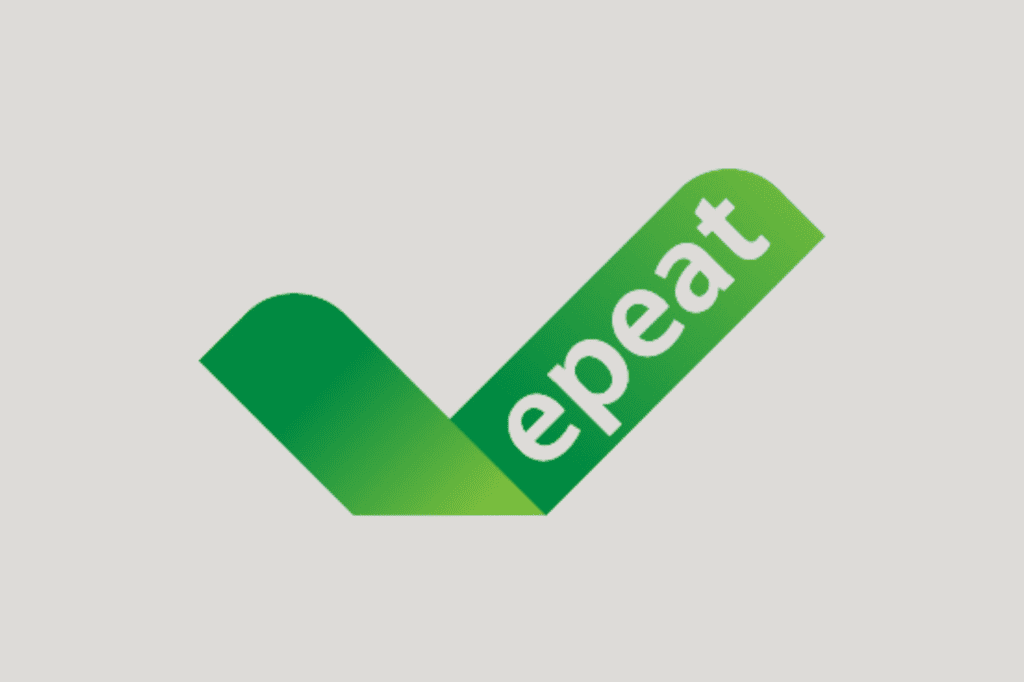
What does it symbolize?
EPEAT is a robust environmental rating system for electronic products, ensuring they meet specific sustainability criteria. Developed to assist purchasers in making informed decisions, EPEAT evaluates the environmental performance of electronic devices, including computers, monitors, and printers.
Pros
- Reduced Environmental Impact: Encourages manufacturers to design products with reduced energy consumption, recyclability, and minimized use of hazardous materials.
- Consumer Transparency: Provides consumers with transparent information about the environmental attributes of electronic products.
- Government Procurement: Some governments and organizations mandate or prefer EPEAT-certified products, boosting demand for eco-friendly electronics.
Cons
- Limited Coverage: Primarily focuses on electronic products, leaving other sectors without a comparable standard.
- Periodic Updates: As technology evolves, EPEAT criteria may need frequent updates to address emerging environmental concerns.
EPEAT certification facilitates eco-conscious choices in the electronics industry, fostering sustainable practices and encouraging manufacturers to prioritize environmental considerations in product design.
UL ENVIRONMENT SUSTAINABLE PRODUCT CERTIFICATION
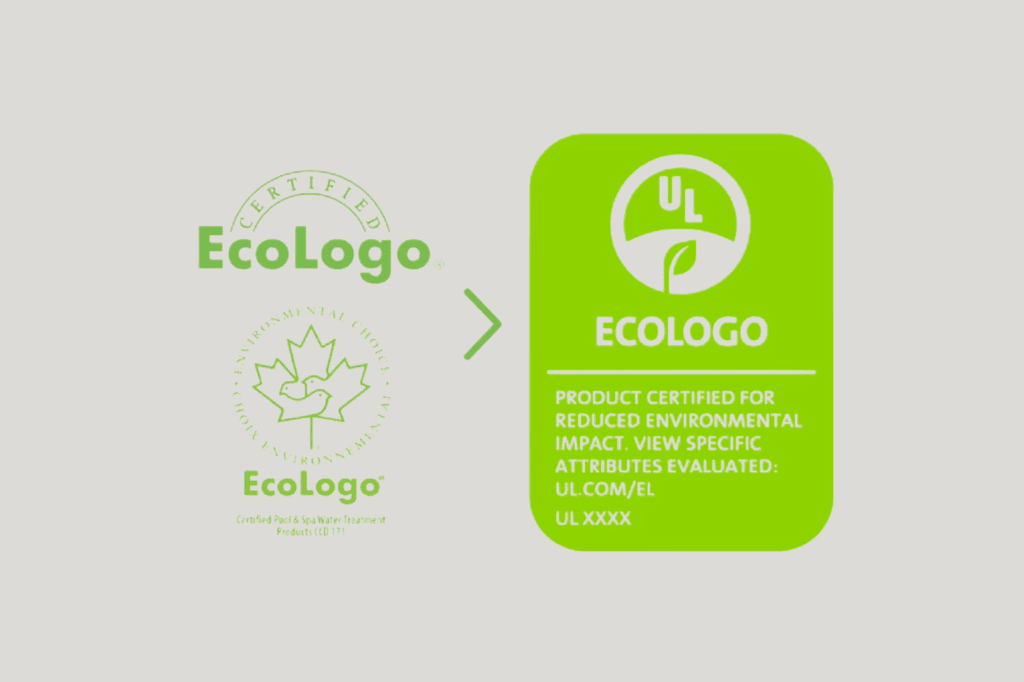
What does it symbolize?
UL Environment Sustainable Product Certification is a mark that signifies a product’s adherence to stringent environmental standards. UL, a global safety science company, assesses products across various industries for their environmental sustainability, considering factors like materials, energy use, and manufacturing processes.
Pros
- Comprehensive Evaluation: UL Environment evaluates products holistically, considering environmental impact throughout the product’s life cycle.
- Global Recognition: UL is a well-established and internationally recognized organization, providing credibility to certified products.
- Consumer Confidence: The certification helps consumers identify products with verified environmental claims, fostering confidence in sustainable choices.
Cons
- Cost and Complexity: Obtaining certification may involve costs and complex processes, potentially limiting smaller businesses’ participation.
UL Environment Sustainable Product Certification serves as a reliable indicator for consumers seeking products aligned with rigorous environmental standards, promoting sustainability in various industries.
WRAP (WORLDWIDE RESPONSIBLE ACCREDITED PRODUCTION)
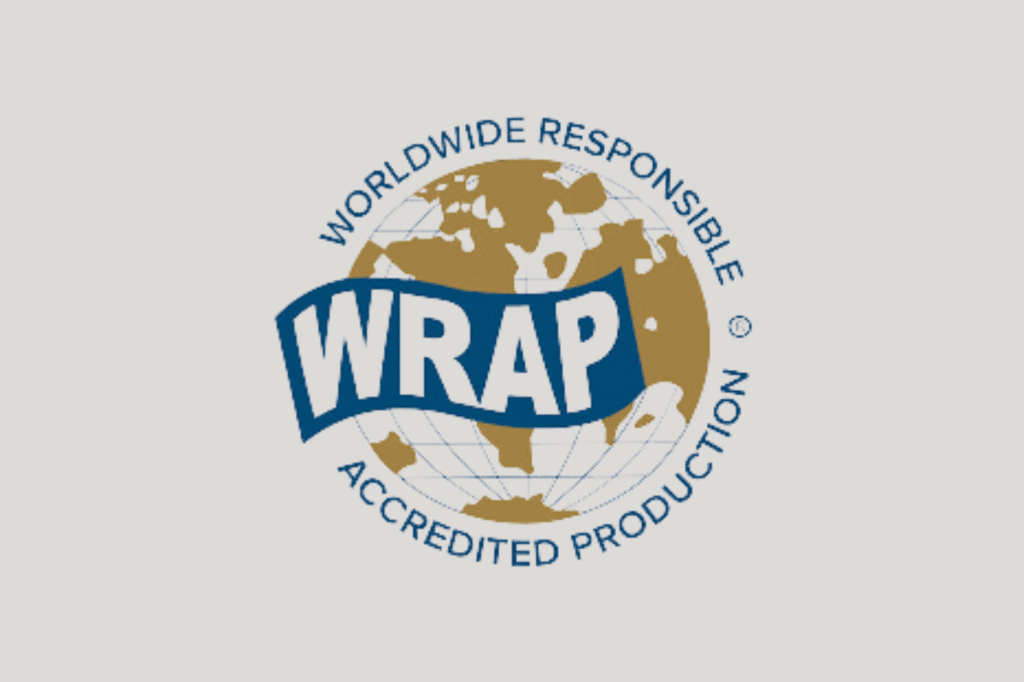
What does it symbolize?
WRAP certification is a globally recognized accreditation that emphasizes ethical and responsible manufacturing practices. It verifies that a facility complies with stringent criteria regarding lawful, humane, and ethical production, addressing factors such as worker rights, workplace conditions, and environmental responsibility.
Pros
- Ethical Manufacturing: WRAP focuses on ensuring humane treatment of workers, fair labor practices, and compliance with local labor laws.
- Global Recognition: The certification is respected worldwide, providing assurance to consumers and stakeholders about a company’s commitment to responsible production.
- Supply Chain Accountability: WRAP certification extends its scrutiny beyond the manufacturing facility, promoting ethical practices throughout the supply chain.
Cons
- Emphasis on Labor Practices: While it addresses critical aspects of ethical production, WRAP’s primary focus is on labor-related standards.
WRAP certification plays a vital role in promoting responsible and ethical manufacturing practices, offering consumers confidence in choosing products made with a commitment to social responsibility.
GLOBAL ORGANIC TEXTILE STANDARD (GOTS)
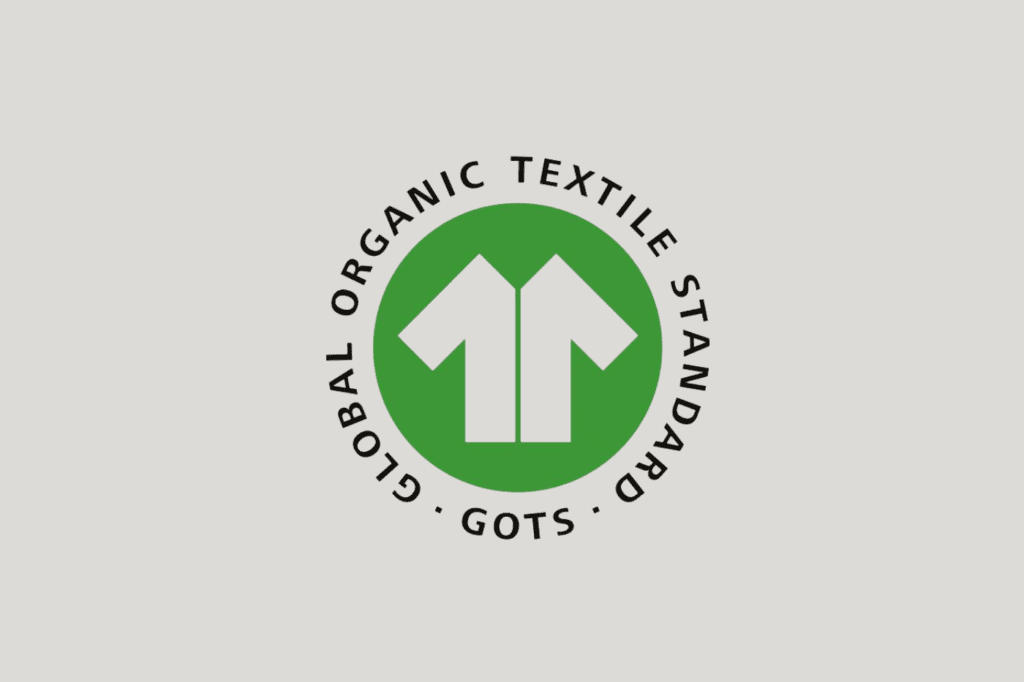
What does it symbolize?
GOTS is a leading international standard for organic textiles, ensuring the ecological and social sustainability of products. It covers the entire supply chain, from harvesting raw materials to environmentally and socially responsible manufacturing and labeling.
Pros
- Comprehensive Sustainability: GOTS certifies the entire textile production process, addressing environmental and social aspects.
- Organic Integrity: Ensures that textiles with the GOTS label are made with a high percentage of organic fibers, reducing environmental impact.
- Social Criteria: Includes criteria for fair labor practices, ensuring ethical treatment of workers throughout the supply chain.
Cons
- Stringent Requirements: Adhering to GOTS standards can be demanding for manufacturers due to its comprehensive criteria.
GOTS certification provides consumers with confidence that the textiles they purchase meet rigorous organic and sustainable standards, promoting a healthier and more environmentally friendly textile industry.
SUSTAINABLE FORESTRY INITIATIVE (SFI)
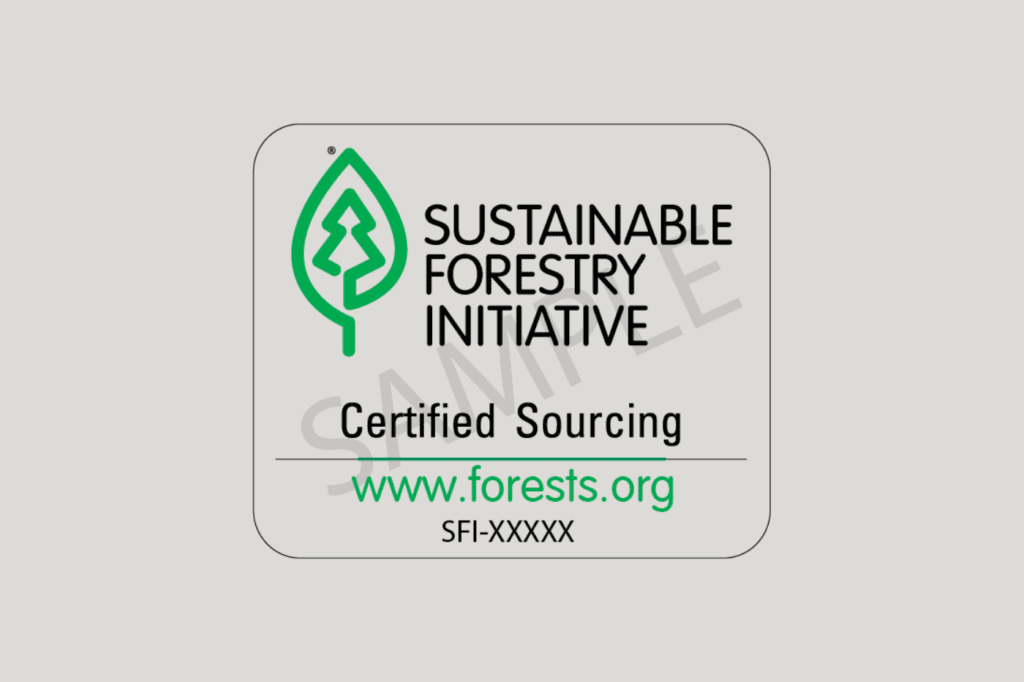
What does it symbolize?
The Sustainable Forestry Initiative (SFI) is a certification program promoting responsible and sustainable forest management practices. It ensures that wood and paper products come from responsibly managed forests, considering environmental, social, and economic aspects.
Pros
- Forest Management: Encourages responsible forest management, protecting biodiversity and ecosystem health.
- Certified Products: Products with the SFI label indicate a commitment to sustainable forestry practices.
- Continuous Improvement: SFI standards evolve to incorporate new research and address emerging sustainability challenges.
Cons
- Industry Ties: Some critics argue that the SFI has industry ties, potentially influencing its standards.
SFI certification plays a crucial role in promoting sustainable forestry practices, contributing to the conservation of forests and biodiversity while supporting the responsible use of wood and paper products.
CRADLE TO CRADLE (C2C) CERTIFIED APPAREL
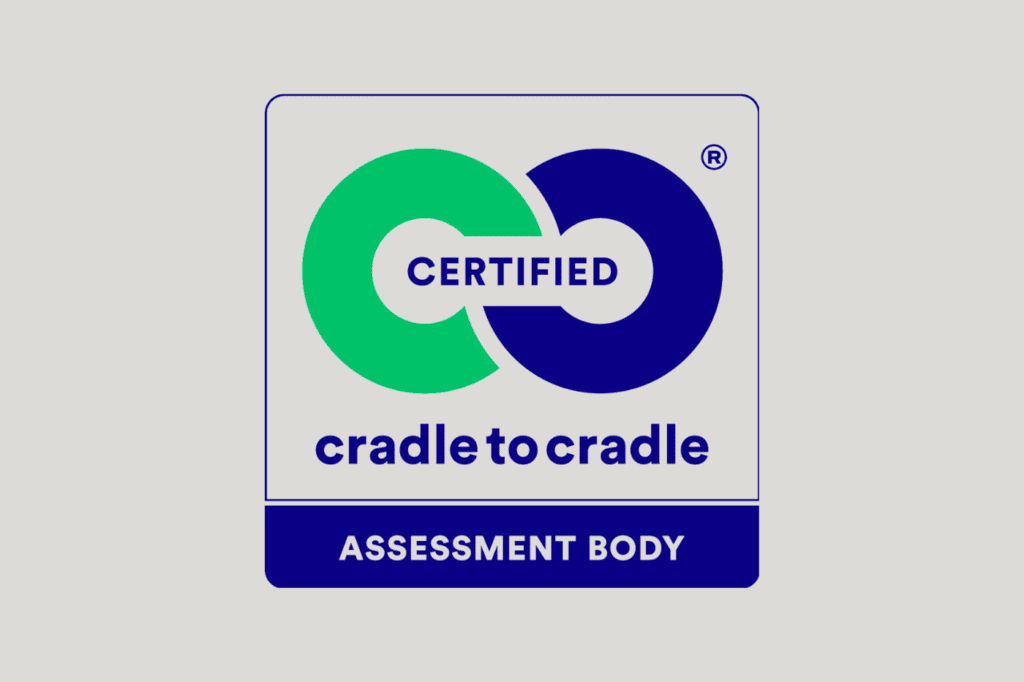
What does it symbolize?
Cradle to Cradle (C2C) Certified Apparel ensures that clothing is designed with the environment in mind, aiming for a circular approach where products can be recycled or composted at the end of their life cycle. It evaluates materials, manufacturing processes, and social responsibility.
Pros
- Circular Economy: Embraces a circular model, minimizing waste and encouraging recycling.
- Material Health: Focuses on using materials that are safe for both people and the environment.
- Innovation: Encourages innovation in sustainable design and manufacturing.
Cons
- Limited Adoption: Not all apparel brands have embraced Cradle to Cradle certification.
Cradle to Cradle Certified Apparel represents a commitment to eco-friendly fashion, promoting materials that can be safely returned to nature and supporting a more sustainable and responsible clothing industry.
FAIR TRADE CERTIFIED
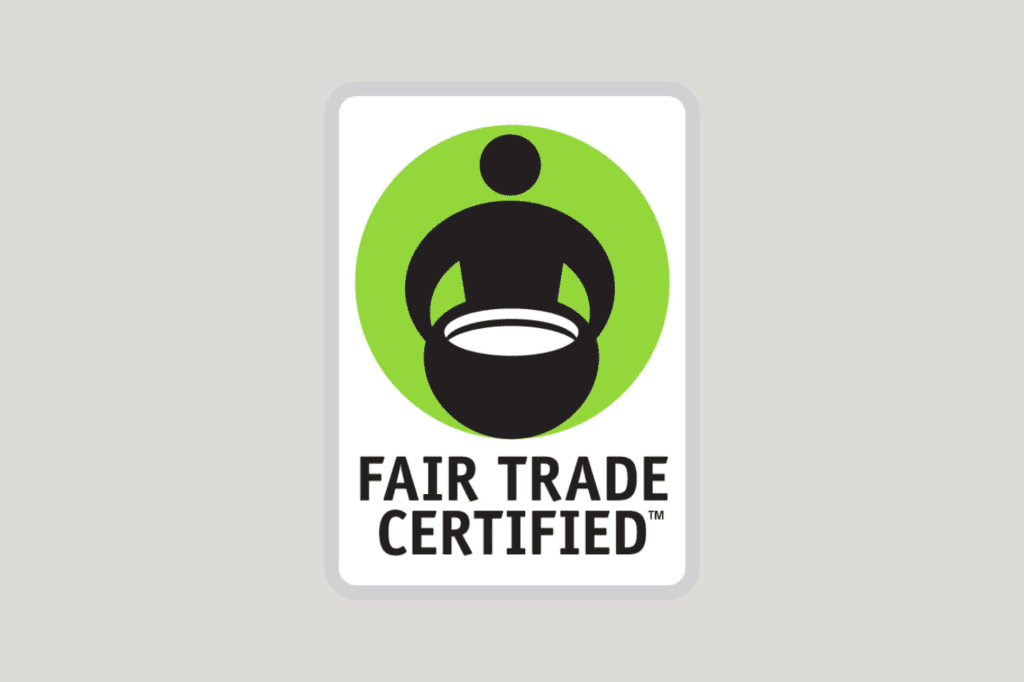
What does it symbolize?
Fair Trade Certified ensures that products, including clothing, are produced ethically, promoting fair wages, safe working conditions, and sustainable practices. This certification empowers farmers and workers in developing countries, fostering social and environmental responsibility.
Pros
- Social Equity: Guarantees fair wages and better working conditions for producers.
- Community Development: Supports community development projects funded by Fair Trade premiums.
- Environmental Standards: Encourages sustainable farming practices and eco-friendly production.
Cons
- Limited Scope: Fair Trade certification might not cover all aspects of a product’s life cycle.
Choosing Fair Trade Certified apparel aligns with ethical consumerism, promoting a more equitable and sustainable global supply chain. It empowers consumers to make choices that positively impact the lives of those involved in the production process.
B CORP CERTIFICATION
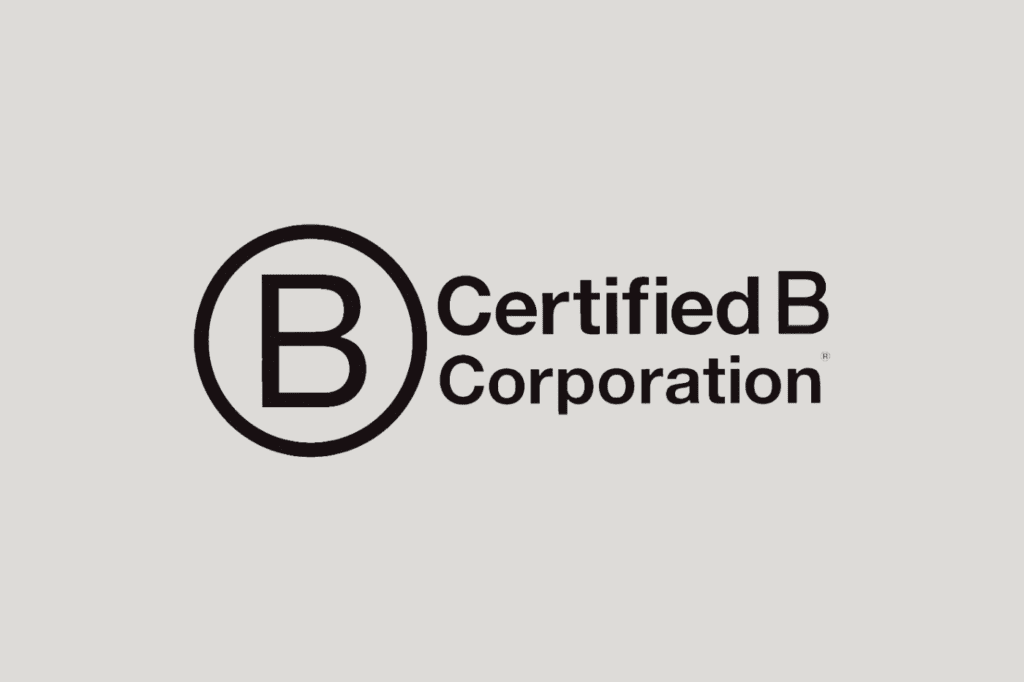
What does it symbolize?
B Corp Certification, awarded by B Lab, signifies that a company meets high standards of social and environmental performance, transparency, and accountability. It measures a business’s impact on all stakeholders, including workers, communities, and the environment, aiming for a positive contribution to society.
Pros
- Triple Bottom Line: Focuses on social, environmental, and economic impact.
- Transparency: Requires transparency in business practices and decision-making.
- Continuous Improvement: Encourages companies to continually improve their impact.
Cons
- Stringent Criteria: Meeting B Corp standards can be challenging for some businesses.
Being B Corp Certified showcases a commitment to using business as a force for good. Consumers can trust that certified companies prioritize people and the planet alongside profit.
FAIR WEAR FOUNDATION
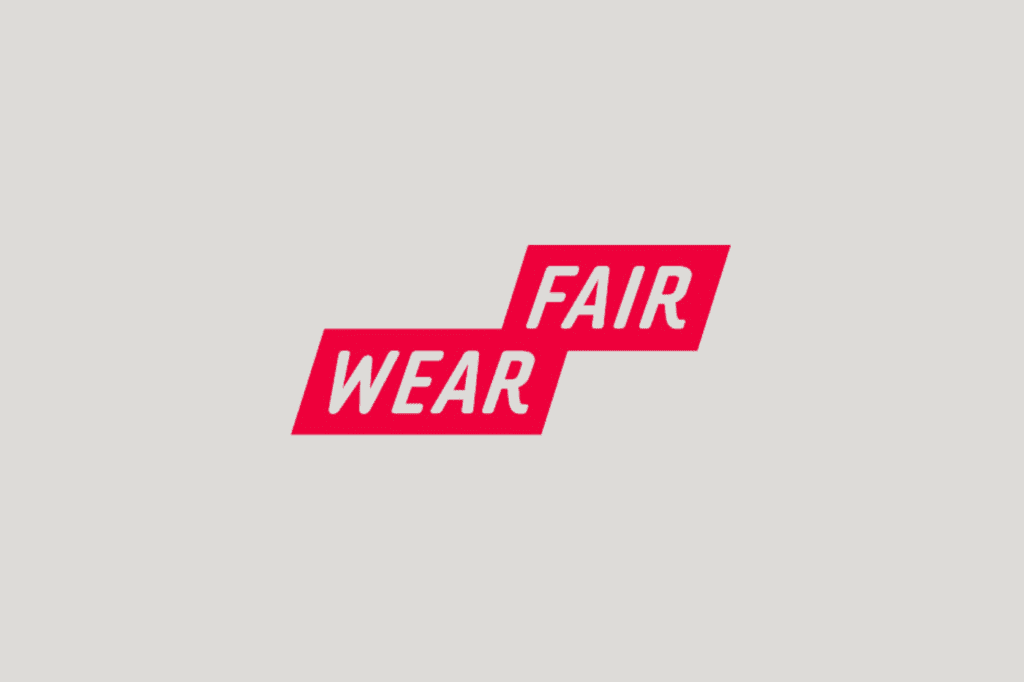
What does it symbolize?
Fair Wear Foundation (FWF) is an independent nonprofit organization that works to improve labor conditions in garment and textile factories worldwide. FWF certification indicates a brand’s commitment to ethical and fair treatment of workers throughout its supply chain.
Pros
- Worker Rights: Ensures fair wages, safe working conditions, and workers’ rights.
- Transparency: Encourages transparency about the supply chain and production processes.
- Continuous Improvement: Brands commit to ongoing improvements in labor conditions.
Cons
- Challenges in Implementation: Achieving and maintaining FWF certification may pose challenges.
FWF certification is a valuable assurance for consumers seeking ethically produced clothing, indicating that the brand is actively addressing and improving labor conditions in its supply chain.
USDA ORGANIC
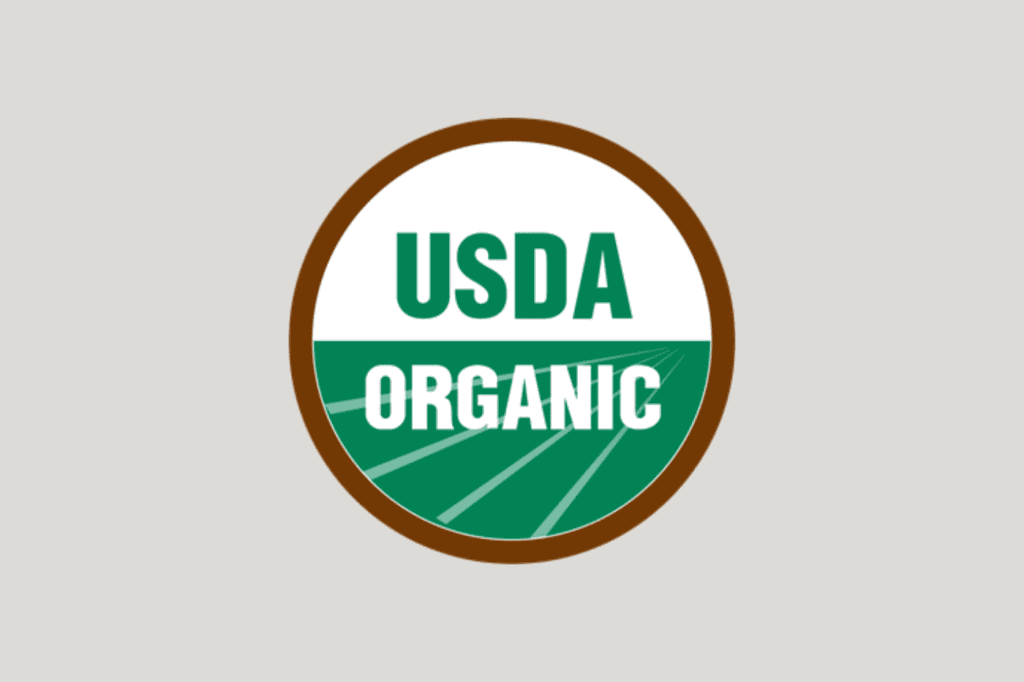
What does it symbolize?
The United States Department of Agriculture (USDA) Organic certification signifies that a product meets the USDA’s standards for organic production. This includes adherence to strict guidelines regarding farming practices, synthetic chemical usage, and sustainable agricultural methods.
Pros
- Organic Integrity: Assures consumers that the product is produced without synthetic chemicals, pesticides, or genetically modified organisms (GMOs).
- Environmental Benefits: Supports environmentally friendly and sustainable farming practices.
- Consumer Confidence: Builds trust among consumers who prioritize organic and sustainable products.
Cons
- Cost and Certification Process: Obtaining and maintaining USDA Organic certification can be costly and involves a rigorous certification process.
USDA Organic certification is widely recognized, providing consumers with confidence that the product aligns with organic and sustainable farming principles.
RAINFOREST ALLIANCE CERTIFIED
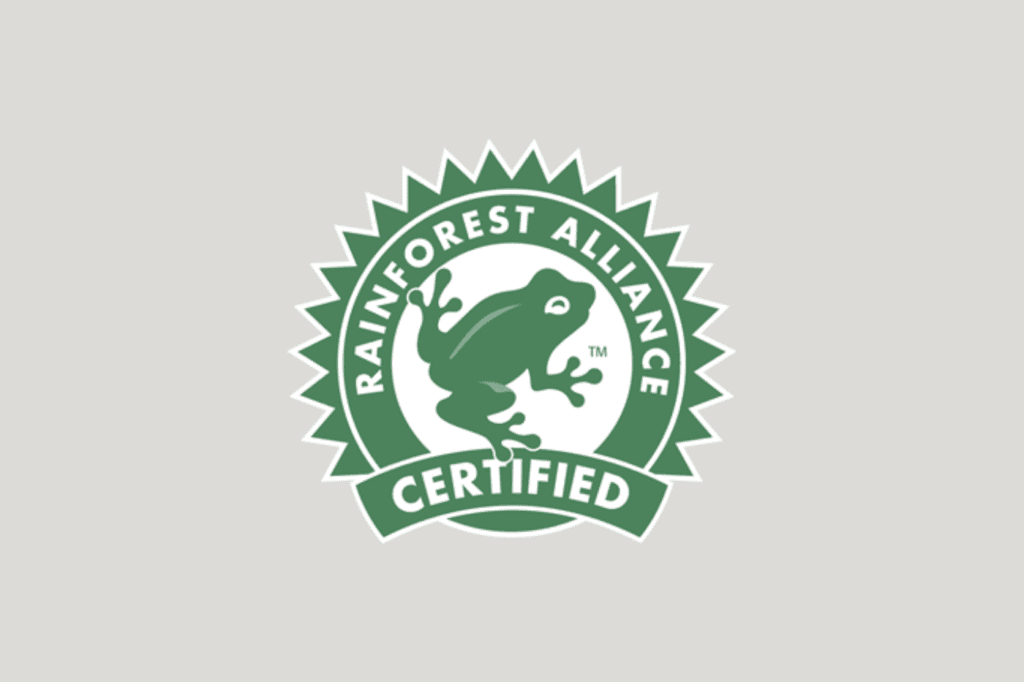
What does it symbolize?
The Rainforest Alliance Certified seal indicates that a product or business meets the rigorous environmental, social, and economic standards set by the Rainforest Alliance. It emphasizes sustainable agricultural practices, biodiversity conservation, and fair treatment of workers.
Pros
- Environmental Conservation: Promotes responsible land use and farming practices that protect ecosystems and biodiversity.
- Social Responsibility: Ensures fair treatment and better working conditions for farmworkers, fostering social sustainability.
- Consumer Trust: The certification fosters consumer confidence in products that are ethically and sustainably sourced.
Cons
- Certification Costs: Some farmers and businesses may face challenges related to the costs associated with certification.
Rainforest Alliance Certification provides consumers with assurance that the product supports sustainable and ethical practices, benefiting both the environment and the communities involved in production.
MARINE STEWARDSHIP COUNCIL (MSC)
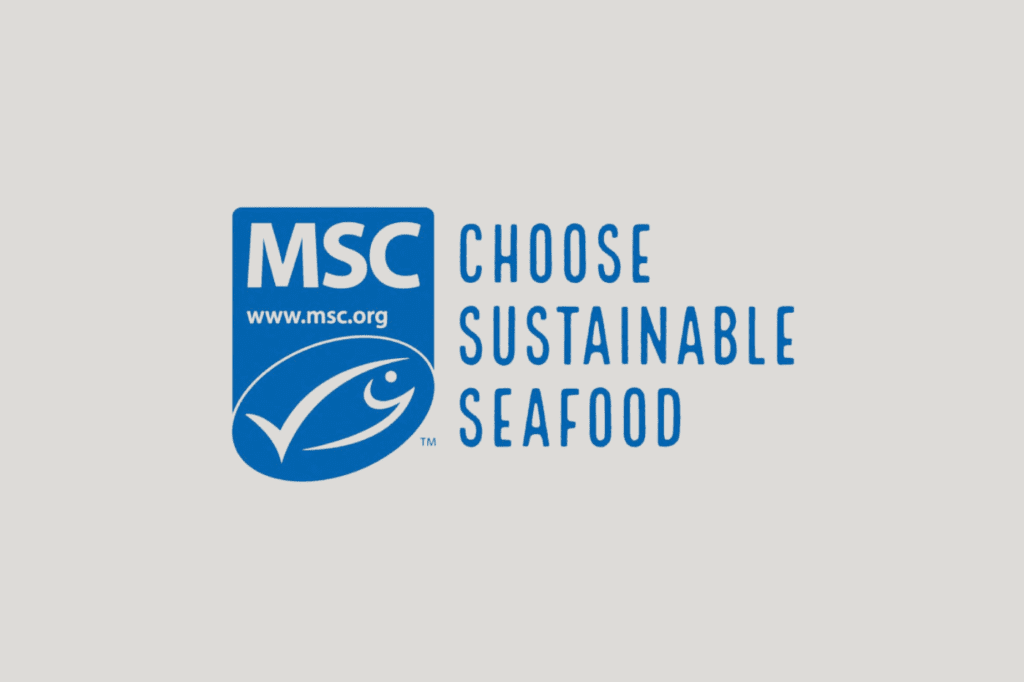
What does it symbolize?
The Marine Stewardship Council (MSC) certification signifies that a fishery has been assessed and meets the standards for sustainable fishing practices. It assures consumers that the seafood product comes from a fishery committed to maintaining healthy fish populations and ecosystems.
Pros
- Sustainable Fisheries: Supports fisheries that adhere to strict sustainability criteria to prevent overfishing and protect marine ecosystems.
- Traceability: MSC-certified products often come with a chain-of-custody certification, ensuring the seafood can be traced back to a sustainable source.
- Consumer Confidence: Provides consumers with a recognizable label for sustainably sourced seafood, encouraging responsible choices.
Cons
- Certification Challenges: Some fisheries may face obstacles in meeting the stringent criteria for certification.
The MSC certification helps consumers make environmentally conscious choices by supporting fisheries committed to maintaining the health of the world’s oceans.
NON-GMO PROJECT VERIFIED
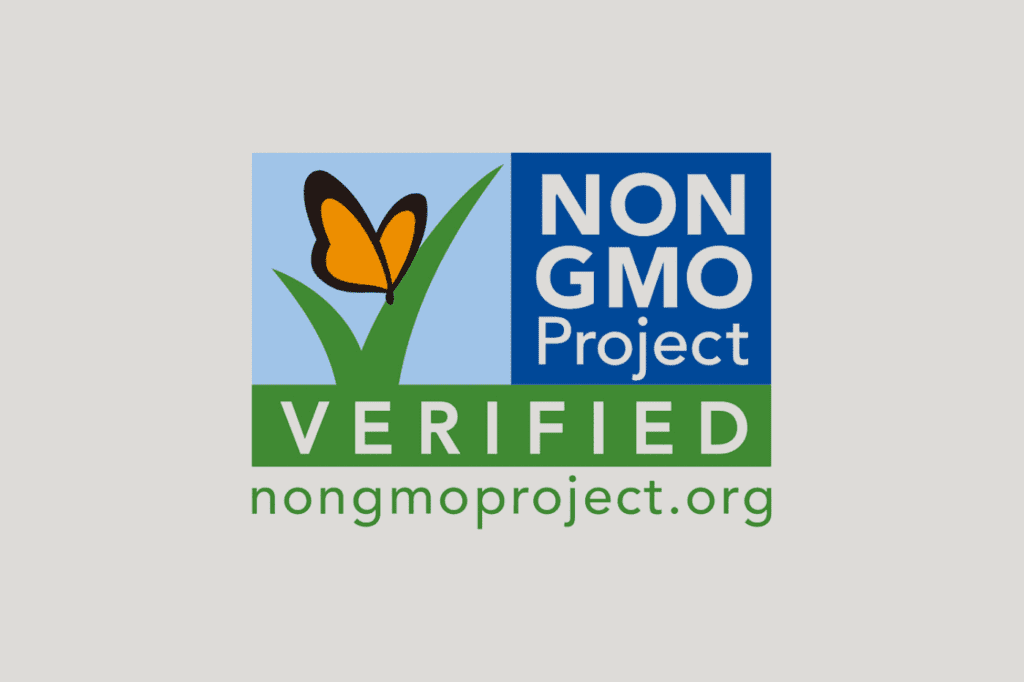
What does it symbolize?
The Non-GMO Project Verified seal indicates that a product has undergone third-party testing and meets stringent standards for the absence of genetically modified organisms (GMOs). It assures consumers that the product aligns with non-GMO best practices.
Pros
- GMO-Free Assurance: Provides consumers with confidence that the product is free from genetically modified ingredients.
- Transparency: The verification process involves thorough testing and documentation, promoting transparency in the supply chain.
- Consumer Choice: Supports consumers who prefer to make informed choices about avoiding GMOs in their diet.
Cons
- Complex Supply Chains: Some products may have complex supply chains, making it challenging for manufacturers to source only non-GMO ingredients.
The Non-GMO Project Verified seal empowers consumers to choose products that align with their preferences for non-genetically modified foods.
GREEN E
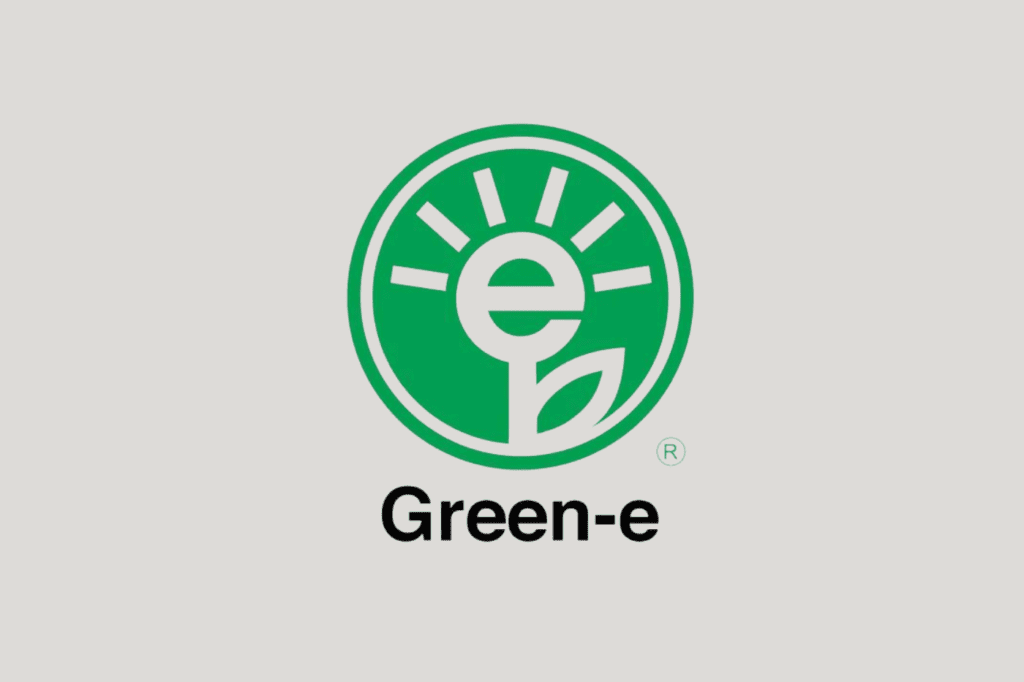
What does it symbolize?
Green-e is a certification program that verifies and certifies renewable energy products and programs to ensure they meet environmental and consumer protection standards. It helps consumers identify and support renewable energy options.
Pros
- Renewable Energy Certification: Green-e certification ensures that energy products are sourced from renewable sources, such as wind, solar, or hydropower.
- Consumer Confidence: Consumers can make environmentally conscious choices by selecting products and services certified by Green-e.
- Environmental Impact: Supports the growth and adoption of renewable energy, contributing to reduced reliance on non-renewable resources.
Cons
- Industry-Specific: Green-e is focused on the energy sector, limiting its scope to renewable energy certification.
Green-e empowers consumers to choose energy options that align with their commitment to sustainability and environmental responsibility.
How trustworthy are sustainability certifications?

Sustainability certifications can be a reliable guide to a product or company’s commitment to eco-friendly practices.
However, not all certifications are created equal. Trustworthy ones often come from well-known programs or government bodies with solid reputations. Think of it as checking credentials before hiring someone.
A little research into the certifying body’s credibility and the criteria they use can go a long way in ensuring you’re making eco-conscious choices – better safe than sorry!
Factors for Trustworthiness
- Check if the certifying body is a reputable one.
- Peek behind the scenes – transparent certification processes are a good sign.
- The more rigorous and well-defined the standards, the better the trustworthiness.
What is the best qualification for sustainability?
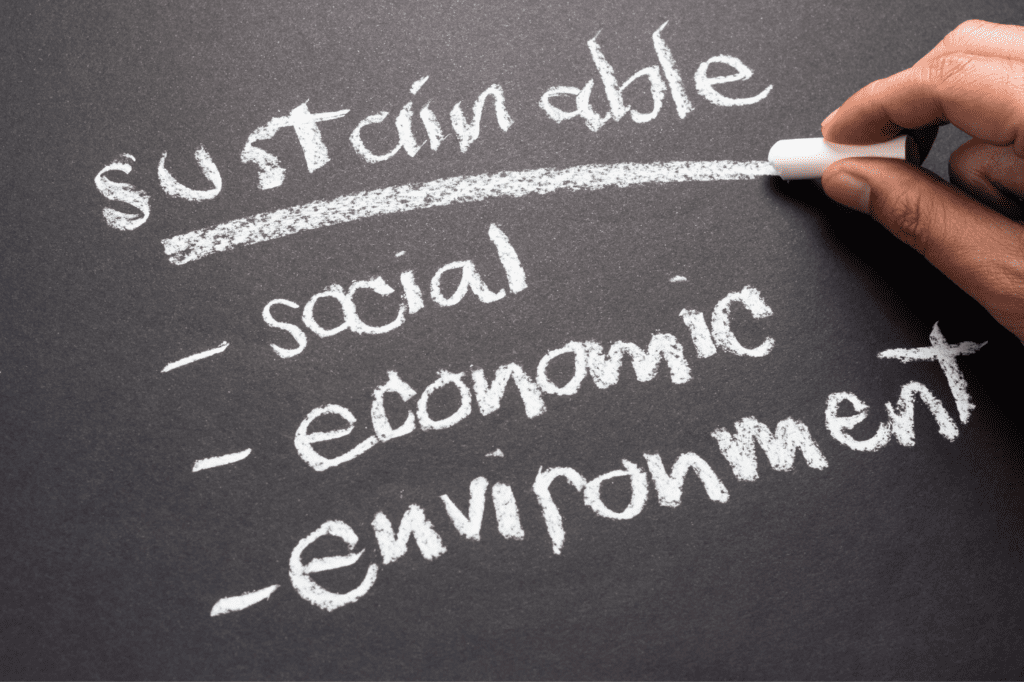
Identifying the best qualification for sustainability is highly subjective. Your best qualification depends on your specific goals and interests within the vast field of sustainability.
Some might swear by LEED accreditation for buildings, while others find the Certified B Corporation status a gold standard for overall corporate responsibility. It’s akin to choosing the right degree for your career – what aligns with your passion and objectives?
Evaluating your individual needs and the specific sector you’re interested in will help you pinpoint the best qualification for your sustainability journey.
Options to Consider
- LEED Certification for green buildings.
- Certified B Corporation for socially and environmentally responsible businesses.
- Fair Trade Certification for ethical and sustainable production practices.
- ISO 14001 for environmental management systems.
- USDA Organic Certification for sustainable agriculture.
Conclusion
As you navigate the world of sustainability certifications, remember their power to shape a greener future. Choose certifications aligned with your values, assess your impact, and actively join the sustainability movement.
Your decisions matter—act now for a more eco-friendly tomorrow.






